Filter by
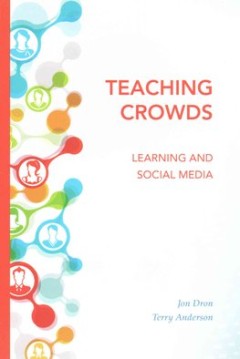
Teaching crowds : learning and social media
Within the rapidly expanding field of educational technology, learners and educators must confront a seemingly overwhelming selection of tools designed to deliver and facilitate both online and blended learning. Many of these tools assume that learning is configured and delivered in closed contexts, through learning management systems (LMS). However, while traditional "classroom" learning is by…
- Edition
- -
- ISBN/ISSN
- 9781771990004
- Collation
- xv, 353p. : ill.
- Series Title
- -
- Call Number
- 371.33 DRO t
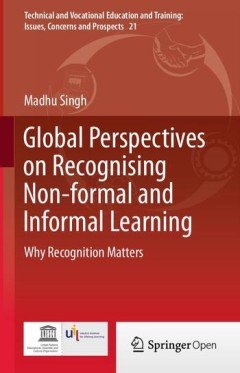
Global perspectives on recognising non-formal and informal learning : why rec…
This book deals with the relevance of recognition and validation of non-formal and informal learning education and training, the workplace and society. In an increasing number of countries, it is at the top of the policy and research agenda ranking among the possible ways to redress the glaring lack of relevant academic and vocational qualifications and to promote the development of competences…
- Edition
- -
- ISBN/ISSN
- 9783319152783
- Collation
- xix, 220p : ill.
- Series Title
- -
- Call Number
- 370.11 SIN g
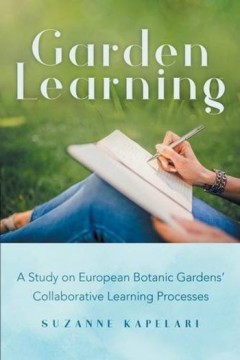
Garden learning : a study on European botanic gardens' collaborative learning…
"From 2007-2013 the European 7th Framework Program Science in Society (FP7) funded a multitude of formal and informal educational institutions to join forces and engage in alternative ways to teach science—inside and outside the classroom—all over Europe. This book reports on one of these projects named INQUIRE which was developed and implemented to support 14 Botanic Gardens and Natural Hi…
- Edition
- -
- ISBN/ISSN
- 9781909188662
- Collation
- vi, 185p. : ill.
- Series Title
- -
- Call Number
- 370 KAP g
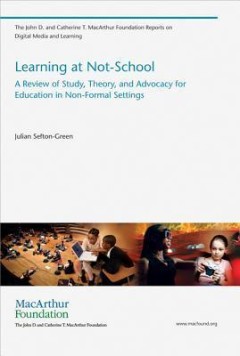
Learning at not-school : a review of study, theory, and advocacy for educatio…
A review of research on “not-school” learning that investigates what is distinctive in the quality of learning in these settings.Schools do not define education, and they are not the only institutions in which learning takes place. After-school programs, music lessons, Scouts, summer camps, on-the-job training, and home activities all offer out-of-school educational experiences. In Learning…
- Edition
- -
- ISBN/ISSN
- 9780262518246
- Collation
- vii, 92p. : ill.
- Series Title
- -
- Call Number
- 371.19 SEF l
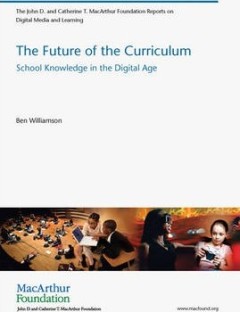
The future of the curriculum : school knowledge in the digital age
An examination of curriculum innovations that are shaped by new ideas about digital media and learning.Although ideas about digital media and learning have become an important area for educational research, little attention has been given to the practical and conceptual implications for the school curriculum. In this book, Ben Williamson examines a series of contemporary curriculum innovations …
- Edition
- -
- ISBN/ISSN
- 9780262518826
- Collation
- vii, 139p. : ill.
- Series Title
- -
- Call Number
- 375.001 WIL f
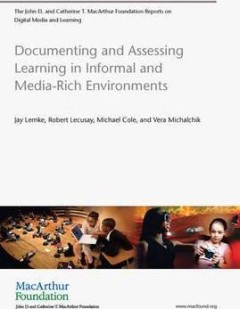
Documenting and assessing learning in informal and media-rich environments
An extensive review of the literature on learning assessment in informal settings, expert discussion of key issues, and a new model for good assessment practice. Today educational activities take place not only in school but also in after-school programs, community centers, museums, and online communities and forums. The success and expansion of these out-of-school initiatives depends on our ab…
- Edition
- -
- ISBN/ISSN
- 9780262527743
- Collation
- vii, 156p. : ill.
- Series Title
- -
- Call Number
- 371.04 LEM d
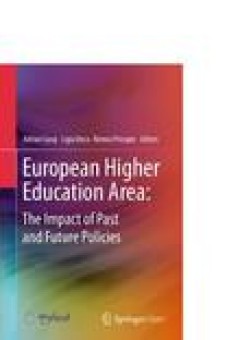
European higher education area : the impact of past and future policies
This volume presents the major outcomes of the third edition of the Future of Higher Education – Bologna Process Researchers Conference (FOHE-BPRC 3) which was held on 27-29 November 2017. It acknowledges the importance of a continued dialogue between researchers and decision-makers and benefits from the experience already acquired, this way enabling the higher education community to bring it…
- Edition
- -
- ISBN/ISSN
- 9783319774077
- Collation
- VIII, 721 p.
- Series Title
- -
- Call Number
- 378 EUR e
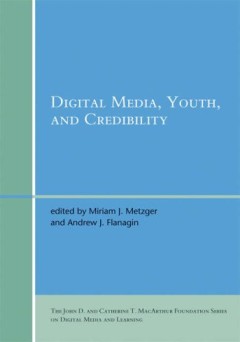
Digital media, youth, and credibility
The difficulties in determining the quality of information on the Internet—in particular, the implications of wide access and questionable credibility for youth and learning.Today we have access to an almost inconceivably vast amount of information, from sources that are increasingly portable, accessible, and interactive. The Internet and the explosion of digital media content have made more …
- Edition
- -
- ISBN/ISSN
- 9780262562324
- Collation
- 212p. : ill.
- Series Title
- -
- Call Number
- 302.2310835 DIG d
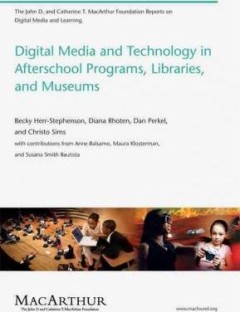
Digital media and technology in afterschool programs, libraries, and museums
An investigation of how three kinds of youth organizations have integrated digital practices into their programs.Digital media and technology have become culturally and economically powerful parts of contemporary middle-class American childhoods. Immersed in various forms of digital media as well as mobile and Web-based technologies, young people today appear to develop knowledge and skills thr…
- Edition
- -
- ISBN/ISSN
- 9780262515764
- Collation
- x, 80p. : ill.
- Series Title
- -
- Call Number
- 370.152 HER d
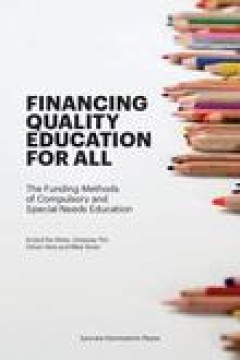
Financing quality education for all: the funding methods of cumpolsory and sp…
In OECD countries the average expenditure on primary and secondary education institutions is about 3.5% of GDP. The investment in education has large implications for economic development and the proper functioning of democratic institutions, as well as overall well-being. However, clear consensus and guidance on which system leads to the best educational outcomes is lacking. This volume descri…
- Edition
- -
- ISBN/ISSN
- 9789461663009
- Collation
- 164p.: ill.
- Series Title
- -
- Call Number
- 379.11 WIT f
 Computer Science, Information & General Works
Computer Science, Information & General Works  Philosophy & Psychology
Philosophy & Psychology  Religion
Religion  Social Sciences
Social Sciences  Language
Language  Pure Science
Pure Science  Applied Sciences
Applied Sciences  Art & Recreation
Art & Recreation  Literature
Literature  History & Geography
History & Geography